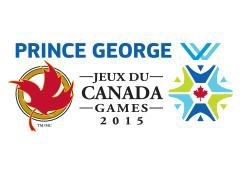Over the last few months, 15 northern communities got the opportunity to train residents and Canada Winter Games medical volunteers in sport safety and injury prevention.
The main workshops presented during the Safe Sport Tour included a Sport First Responder four-day intensive for medical practitioners, SportSmart for basic sports-related first aid, concussion management, soft tissue release and an athletic taping course that covered techniques to prevent injury and minimize damage.
These courses were provided by SportMedBC, Pacific Sport, Northern Health, WINBC, Canadian Sport for Life, Play Safe, Dr. Tom Pashby Sports Safety Fund and the 2015 CWG Host Society.
The goal of the courses was to ensure there were games-ready medical volunteers from northern B.C. with a high level of training to assist athletes during the games while providing a legacy of increased knowledge to be taken back to northern communities after the games. Community members interested in being trained were also welcome to participate in many of the courses.
"So 36 people were trained during the Sport First Responder course and they are all healthcare practitioners in northern B.C.,"said Dr. Anne Pousette, president and chair of PacificSport Northern BC. "Before that there were only two people who had those credentials and we need 40 people every day of the games to work at the field of play where the sports take place, so all these people will remain in B.C. During the winter games in the Yukon people with these qualifications were all flown in and then flew home so this is the legacy piece part of this plan - making sure we changed it up for northern B.C."
The courses were presented by experts in the field.
To get the type of expertise brought into those northern communities is not often experienced, said Denise Foucher, injury prevention coordinator with Northern Health's population health team.
Fort Nelson, Fort St. John, Prince Rupert, Terrace, Smithers, Quesnel, 100 Mile House, Williams Lake, Mackenzie, Chetwynd, Dawson Creek, Valemount, McBride, Vanderhoof and Prince George were the communities that got the courses where as many as 40 people were taking a course each time, said Mandy Levesque, physical activity lead in Northern Health's population health team.
"The opportunity to leverage an education opportunity for a region around concussion and sport injury prevention in relation to a games platform where people are thinking about sport, games and physical activity has not been done in an organized way," said Pousette. "This is really a case study for Canada and there are people who are watching how this rolls out and we are being supported by Dr. Tom Pashby's Sports Safety Fund out of Ontario that is very involved nationally with Think First and other Play Safe initiatives as well, so we are connected to some national initiatives for this tour."
Dr. Pousette wanted to recognize the contribution made to the games by the medical volunteers from northern B.C, especially those who took the four-day intensive Sport First Responder course, who will then take a further two weeks off work to volunteer at the Canada Winter Games in Prince George in February.
"It's a really a huge contribution and then they bring that knowledge back to their community and I think that piece is really worth celebrating," said Pousette.



